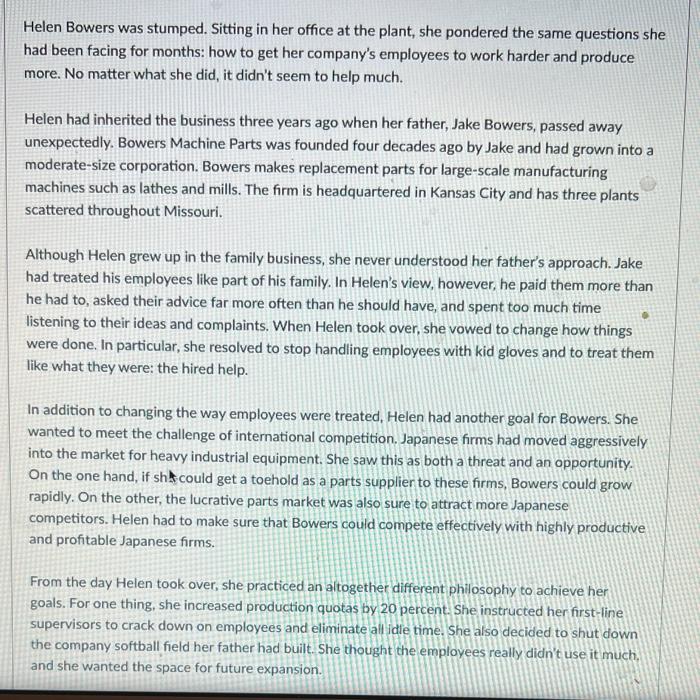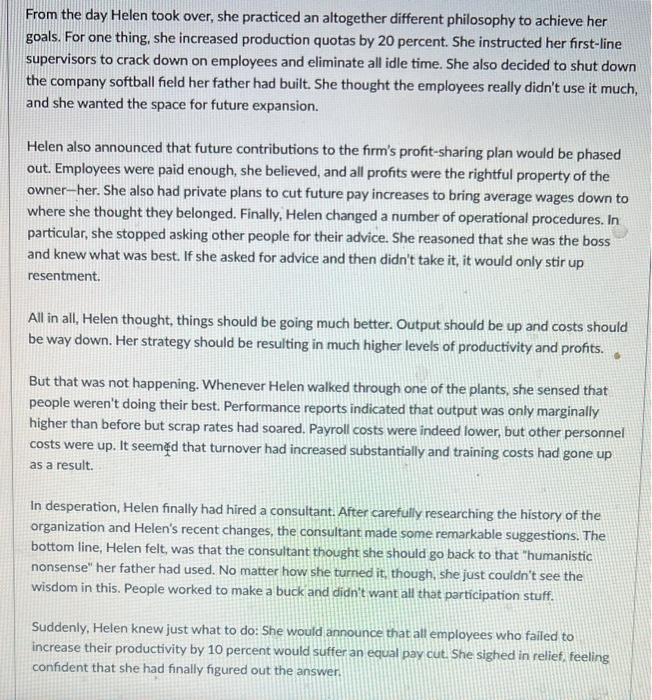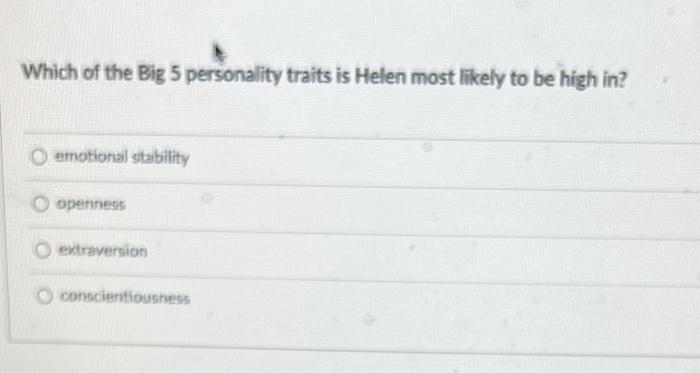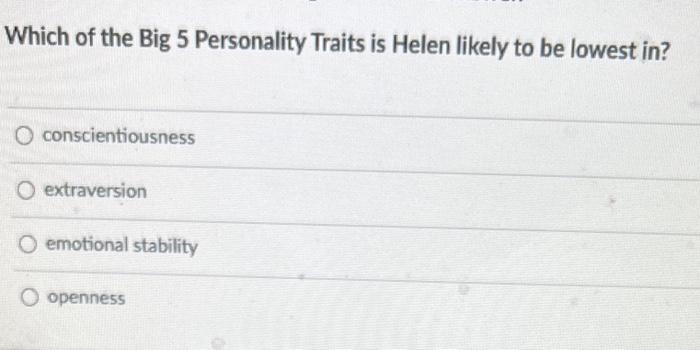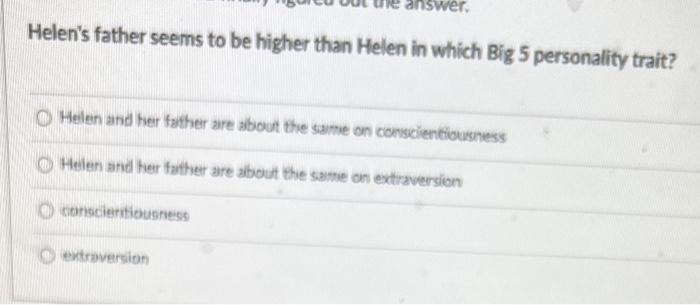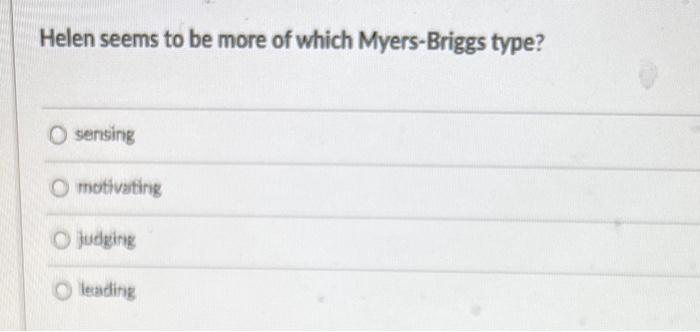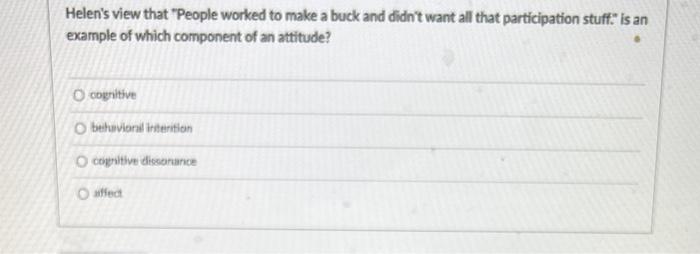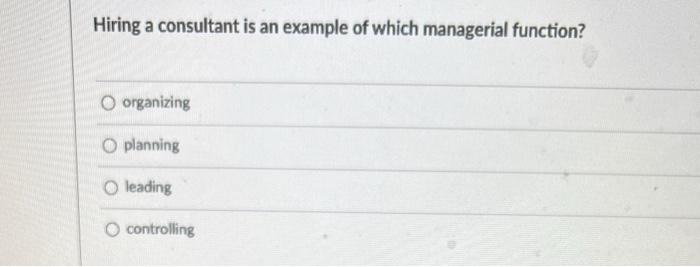Helen Bowers was stumped. Sitting in her office at the plant, she pondered the same questions she had been facing for months: how to get her company's employees to work harder and produce more. No matter what she did, it didn't seem to help much. Helen had inherited the business three years ago when her father, Jake Bowers, passed away unexpectedly. Bowers Machine Parts was founded four decades ago by Jake and had grown into a moderate-size corporation. Bowers makes replacement parts for large-scale manufacturing machines such as lathes and mills. The firm is headquartered in Kansas City and has three plants scattered throughout Missouri. Although Helen grew up in the family business, she never understood her father's approach. Jake had treated his employees like part of his family. In Helen's view, however, he paid them more than he had to asked their advice far more often than he should have, and spent too much time listening to their ideas and complaints. When Helen took over, she vowed to change how things were done. In particular, she resolved to stop handling employees with kid gloves and to treat them like what they were: the hired help. In addition to changing the way employees were treated, Helen had another goal for Bowers. She wanted to meet the challenge of international competition. Japanese firms had moved aggressively into the market for heavy industrial equipment. She saw this as both a threat and an opportunity. On the one hand, if she could get a toehold as a parts supplier to these firms, Bowers could grow rapidly. On the other, the lucrative parts market was also sure to attract more Japanese competitors. Helen had to make sure that Bowers could compete effectively with highly productive and profitable Japanese firms. From the day Helen took over, she practiced an altogether different philosophy to achieve her goals. For one thing, she increased production quotas by 20 percent. She instructed her first-line supervisors to crack down on employees and eliminate all idle time. She also decided to shut down the company softball field her father had built. She thought the employees really didn't use it much, and she wanted the space for future expansion. From the day Helen took over, she practiced an altogether different philosophy to achieve her goals. For one thing, she increased production quotas by 20 percent. She instructed her first-line supervisors to crack down on employees and eliminate all idle time. She also decided to shut down the company softball field her father had built. She thought the employees really didn't use it much, and she wanted the space for future expansion. Helen also announced that future contributions to the firm's profit-sharing plan would be phased out. Employees were paid enough, she believed, and all profits were the rightful property of the owner-her. She also had private plans to cut future pay increases to bring average wages down to where she thought they belonged. Finally, Helen changed a number of operational procedures. In particular, she stopped asking other people for their advice. She reasoned that she was the boss and knew what was best. If she asked for advice and then didn't take it, it would only stir up resentment All in all, Helen thought, things should be going much better. Output should be up and costs should be way down. Her strategy should be resulting in much higher levels of productivity and profits. But that was not happening. Whenever Helen walked through one of the plants, she sensed that people weren't doing their best. Performance reports indicated that output was only marginally higher than before but scrap rates had soared. Payroll costs were indeed lower, but other personnel costs were up. It seemed that turnover had increased substantially and training costs had gone up as a result. In desperation, Helen finally had hired a consultant. After carefully researching the history of the organization and Helen's recent changes, the consultant made some remarkable suggestions. The bottom line, Helen felt, was that the consultant thought she should go back to that "humanistic nonsense" her father had used. No matter how she turned it though, she just couldn't see the wisdom in this. People worked to make a buck and didn't want all that participation stuff. Suddenly, Helen knew just what to do: She would announce that all employees who failed to increase their productivity by 10 percent would suffer an equal pay cut. She sighed in relief feeling confident that she had finally figured out the answer Which of the Big 5 personality traits is Helen most likely to be high in? emotional stability openness extraversion conscientiousness Which of the Big 5 Personality Traits is Helen likely to be lowest in? O conscientiousness o extraversion emotional stability 0 openness Swer Helen's father seems to be higher than Helen in which Big 5 personality trait? Helen and her father are about the same on conscientiousness Helen and her father are about the same on extraversion conscientiousness extraversion Helen seems to be more of which Myers-Briggs type? O sensing O motivating O judging leading Helen's view that "People worked to make a buck and didn't want all that participation stuff" is an example of which component of an attitude? O cognitive behavioral inserition cognitive dissonance affect Hiring a consultant is an example of which managerial function? o organizing O planning leading controlling
